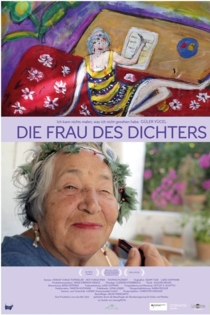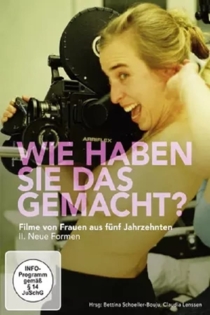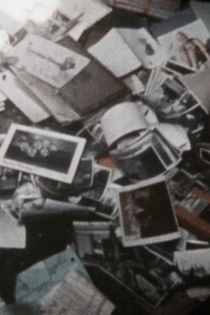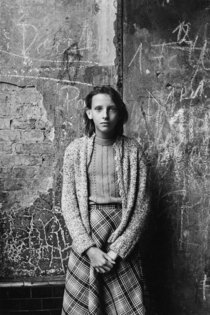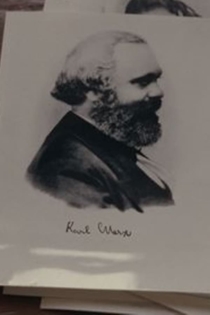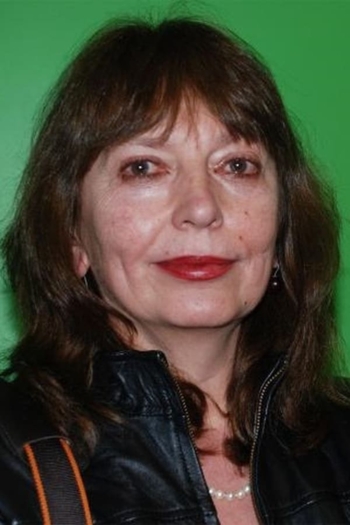
Helke Misselwitz
1947 (78 лет)Winter adé
Helke Misselwitz
Helke Misselwitz
A journey from the North to the South during the last year of the GDR. Laborers and puny girls, mothers, intellectuals, young and old are being interviewed about humanity, they criticize and give hope. They are strong and self confident women who have to eke out a living but still smilingly tell of a world full of contradictions. Awards: Silver Dove, Leipzig 1988.
Winter adé
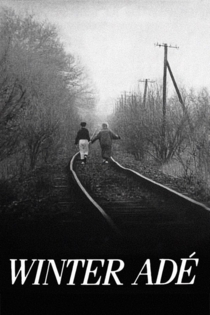
Wer fürchtet sich vorm schwarzen Mann
Helke Misselwitz
Portrait of a private coal company in East Berlin's Prenzlauer Berg district in 1988/89. The feisty woman boss runs the business with humour and understanding. Her seven male employees respect her. To the outside world, they are all tough guys, but as they describe their jobs and personal situations, above and beyond the hard manual labour, their vulnerability starts to come to light.
Who's Afraid of the Bogeyman
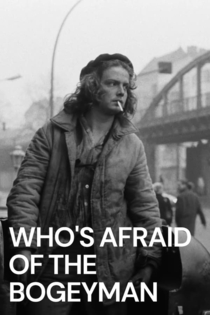
Aktfotografie - z.B. Gundula Schulze
Helke Misselwitz
Gundula Schulze Eldowy
Photographer Gundula Schulze wrote her graduate thesis on "nude photography of women in East Germany". It's a subject she continues to pursue in her photography. She considers the stereotype of superficial nude photography anachronistic, and talks vividly about being at pains to develop a relationship of trust with the women she photographs. Schulze wants to show what makes up the "whole woman", living up to her position in East Germany. Scenes of women in the professional world have been edited into the film.
Nude Portraits – Gundula Schulze

Herzsprung
Helke Misselwitz
Claudia Geisler, Günter Lamprecht
In the little town of Herzsprung - whose name harks back to an ancient legend of broken hearts - almost nothing has changed since German unification, except a rise in unemployment. Johanna, a young mother and widow, becomes one of the unemployed and lives on welfare. To make matters worse, she falls in love with a dark-skinned, roving adventurer and the whole village starts talking about it.
Herzsprung
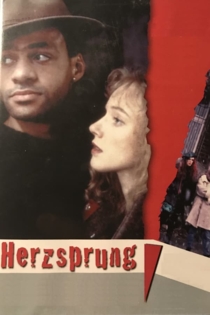
Sperrmüll
Helke Misselwitz
Helke Misselwitz
In early summer 1989, Helke Misselwitz portrays young musicians in a band who produce their music on other people’s waste items. The four boys call themselves "Bulk Rubbish" and they drum out their resentment, having grown up on the new housing estates of East Berlin. A straight-up picture of the GDR youth is presented here, which in no way conforms to the official image. The film crew concentrates on the observation of the boy Enrico and his mother Erika: when the mother marries in the West, her son decides to stay in East Berlin, bidding her farewell at the border-crossing. Only shortly after, the tables are turned again: as the events in Berlin leading up to the fall of the Wall are practically captured live from the film crew, Enrico insists on maintaining his cultural identity, even after the fall of the Wall. The "Bulk Rubbish" musicians want to remain citizens of their own state and perceive the looming reunification with scepticism.
Bulky Trash
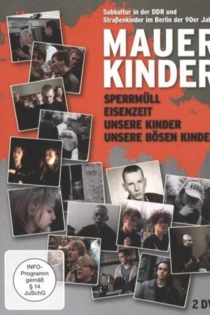
Engelchen
Helke Misselwitz
Susanne Lothar, Cezary Pazura
Ramona lives her lonely life in Berlin working in a lipstick factory. One day she accidentally runs into Andrzei, a Polish mechanic illegally selling cigarettes in Germany during the weekend. One thing leads to another, and soon she finds herself pregnant. Then her life starts falling apart, when Andrzei tells her he already has a wife back in Poland and her baby dies shortly after its premature birth.
Little Angel
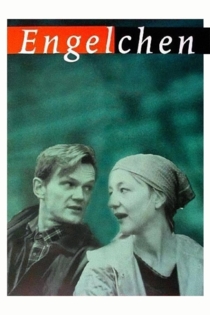
Tango-Traum
Helke Misselwitz
Jan Spitzer
Sitting at her typewriter, listening to tango music, she dreams. Buenos Aires and Montevideo are far away, a different world where, long ago, the tango came into being. A dream about dance and music, as well as about unfulfilled desire and wanderlust behind the Berlin Wall.
Tango Dream

Biologie!
Jörg Foth
Stefanie Stappenbeck, Cornelius Schulz
A small town shortly before the end of the GDR: 15-year-old Ulla lives with her mother in a dilapidated old building where not even the electricity works properly. Economy of scarcity and national bankruptcy are visible everywhere. Only higher party comrades live in the lap of luxury. When Ulla meets Winfried after a summer bathing trip, the two fall in love. Winfried is the son of an influential general director and owns things from West Germany that others only dream of: a computer, a games console, a walkman. On an excursion with her biology class, the high school student discovers that a dacha is being built in the middle of the nature reserve and the creek has been dammed. Winfried's father turns out to be the culprit, but the mayor is on his side. Ulla rebels against this environmental destruction connected to political corruption and organizes a protest. Her activism not only endangers her own future, but also her first great love.
Biology!
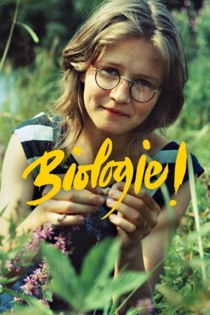
Die Frau des Dichters
Helke Misselwitz
The paintings of the artist Güler Yücel tell about weddings and funerals, of almond blossom and olive harvest, of her husband, the poet, and of herself, her love of life and wisdom. “I can’t paint anything that I have not seen”, says Güler Yücel. She is a chronicler and a prophetess, because her pictures describe the cycle of life, which we find again and again in everyday life: on the Turkish peninsula of Datça, over which the wind of two seas blows.
The Poet’s Wife
